David Brooks’s 4/30 column helps crystallize my own thoughts. I’ve argued here, and in my 2009 book, The Case for Rational Optimism, that in the big picture we’ve been progressing toward Immanuel Kant’s vision of a trading network of peaceful democracies. 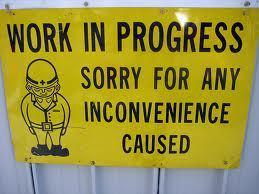 As did Francis Fukuyama in The End of History, and Steven Pinker in The Better Angels of Our Nature. But lately a lot’s been going wrong.
As did Francis Fukuyama in The End of History, and Steven Pinker in The Better Angels of Our Nature. But lately a lot’s been going wrong.
Spiraling downward are nations like Venezuela, Thailand, Bangladesh, Sri Lanka, and Egypt, whose revolution is producing a regime even worse than before; creeping authoritarianism afflicts Turkey; sectarian bloodletting recrudesces in Iraq; unbridled Chinese nationalism bullies its neighbors; Islamist violence seems everywhere; South Sudan blows up; Israelis and Palestinians act not to resolve their conflict but entrench it; Iran holds truculent; and of course Syria descends into metastasizing nightmare, while Putin tramples about, instigating havoc and laughing at the puny sanctions incurred. Devils dance while angels cower.
Is it to time to change this blog’s title?
Paraphrasing Brooks, the perennial problem is the strong preying on the weak. Starting with the 1648 Peace of Westphalia, the world had been getting a grip on this. Nazis and Communists challenged the resulting liberal system but were successfully beaten back. Democracy has expanded phenomenally, and democracies don’t fight each other. All good. But Brooks quotes foreign affairs wise man Charles Hill that this centuries-long trend of geopolitical progress may be stalling out,

Today, says Brooks, the system is under assault not by a single empire but a swarm of bad actors large and small. Whereas Nazis and Commies were unambiguously foes we had to fight, now we face a more insidious infection, a “death by a thousand cuts.”
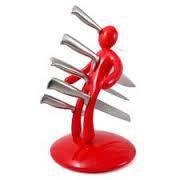
“How,” Brooks queries, “do you get the electorate to support the constant burden of defending the liberal system?” While “people will die for Mother Russia or Allah,” few will die “for a set of pluralistic procedures to protect faraway places.” Few seem to understand it, and too many actually oppose it, never mind fighting for it. But we’re not actually talking about fighting and dying. While some (like Andrew Bacevich on the Newshour the other night) obtusely cast the choice as war versus no war, in fact much could be done without shooting, which is not being done. Brooks notes the West’s balking at even a little economic pain to deploy meaningful sanctions on Russia. And look what happened when President Obama merely suggested a modest action to punish Syria’s regime (far short of “war” or anything that might resolve the problem).
This is why Obama’s foreign policy of tiptoeing caution is actually so profoundly dangerous for the world’s future. Brooks again: ”The liberal pluralistic system is not a spontaneous thing. Preserving that hard-earned ecosystem requires an ever-advancing fabric of alliances, clear lines about what behavior is unacceptably system-disrupting, and the credible threat of political, financial and hard power enforcement.”
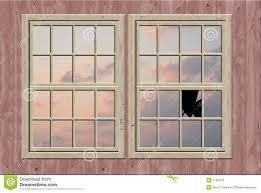
At least some enforcement is needed for rule of law to work; some cop on the beat. Recall the “broken windows” theory of criminology: tolerate a few broken windows, and pretty soon the whole neighborhood succumbs to disorder and lawlessness.
Only America is capable of the necessary global leadership. What’s at stake is not just a bit of Ukrainian territory (the “broken windows”); it’s the whole world, the liberal, democratic, peaceful environment that has brought so much prosperity and freedom to so many.
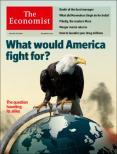
Well here’s a positive proposal. The UN’s creation embodied lofty hopes, but thwarted by what proved to be a design flaw, the Security Council veto, making it too often an obstacle to resolving problems. We need a new organization: a league of democracies. Eligibility might be a tricky issue, though the EU’s application of strict membership criteria seems to work okay. A majority of nations would surely qualify, and such a league would enjoy great moral legitimacy, to fill the role the UN cannot.
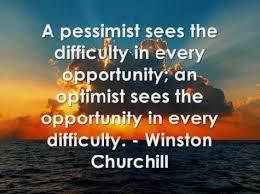
But don’t hold your breath waiting for this.
I remain an optimist; albeit a worried optimist.
